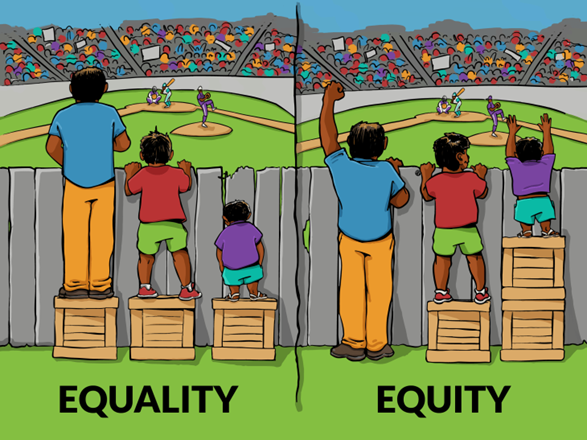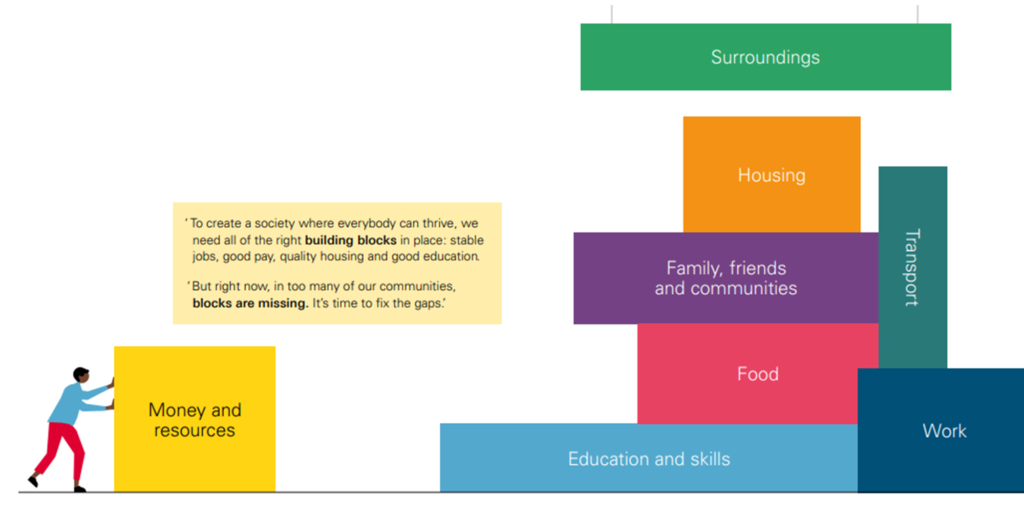In everything we do we promote equalities in the health and wellbeing of our population.
The Bedfordshire, Luton and Milton Keynes (BLMK) Integrated Care System (ICS) works to reduce inequalities in everything we do. In this priority we are specifically looking to reduce systemic inequality, building on the national Core20Plus5 approach to reducing inequalities.
There are significant differences in healthy life expectancy across our four places. In Luton, women can expect to live a healthy life until they are 60, but in Central Bedfordshire, they can expect to live healthily to 67.
Poorer health outcomes are generally experienced by those living in more deprived areas, as measured by the Index of Multiple Deprivation (IMD). Around 120,000 (13%) people in BLMK live in areas of highest deprivation (IMD 1 & 2). Deaths due to circulatory disease, cancer and respiratory disease contribute the most to the life expectancy gap seen between our most and least deprived neighbourhoods. We also have inequalities in health outcomes for people with a learning disability and/or serious mental illness (SMI).
Interventions
This priority is looking to reduce premature mortality rates and infant mortality rates through a range of interventions, including:
- Ensuring continuity of care for women from Black, Asian and minority ethnic (BAME) communities and the most deprived groups
- Ensuring annual health checks for people with SMI
- Driving uptake of vaccinations and earlier diagnosis of cancer
- Investing in local voluntary, community and social enterprise organisations to support people in different, proactive ways
- Working with Primary Care Networks (PCNs) to identify and target high priority cohorts.
Equality vs Equity
What does health equity mean? In the NHS, we often equate fairness with sameness, but really treating people fairly can often mean doing things differently for different people to achieve the best outcomes.

Importance of collaboration to tackle inequity
Health inequity is made up of lots of complex and intersecting factors, known as the Wider Determinants of Health. The World Health Organisation describes these as ‘The conditions in which people are born, grow, live, work and age.” This means that health care services acting alone have very little power – estimates vary between 15-43%* (*Kings Fund, 2013) – to influence health and wellbeing.

This means that we must collaborate with our partners across the system in order to address the root causes of inequity. Working alone won’t have the same impact as working in a coordinated way: we need to serve the whole person, not just the ‘health’ part on its own.
‘Using Quality Improvement to tackle inequity’ workshops
The first workshop on ‘Using Quality Improvement (QI) to tackle equity’ was delivered in BLMK with the Medicines Management team. Read the event write up.
Other teams have the opportunity to participate in future workshops to spread learning. This is a big step towards achieving the commitment to reduce inequalities in BLMK. If you would like your team to participate in a future workshop, or want to find out more about QI for Inequity, contact Lorna Darknell, Improvement Advisor for Inequalities: lorna.darknell@nhs.net






